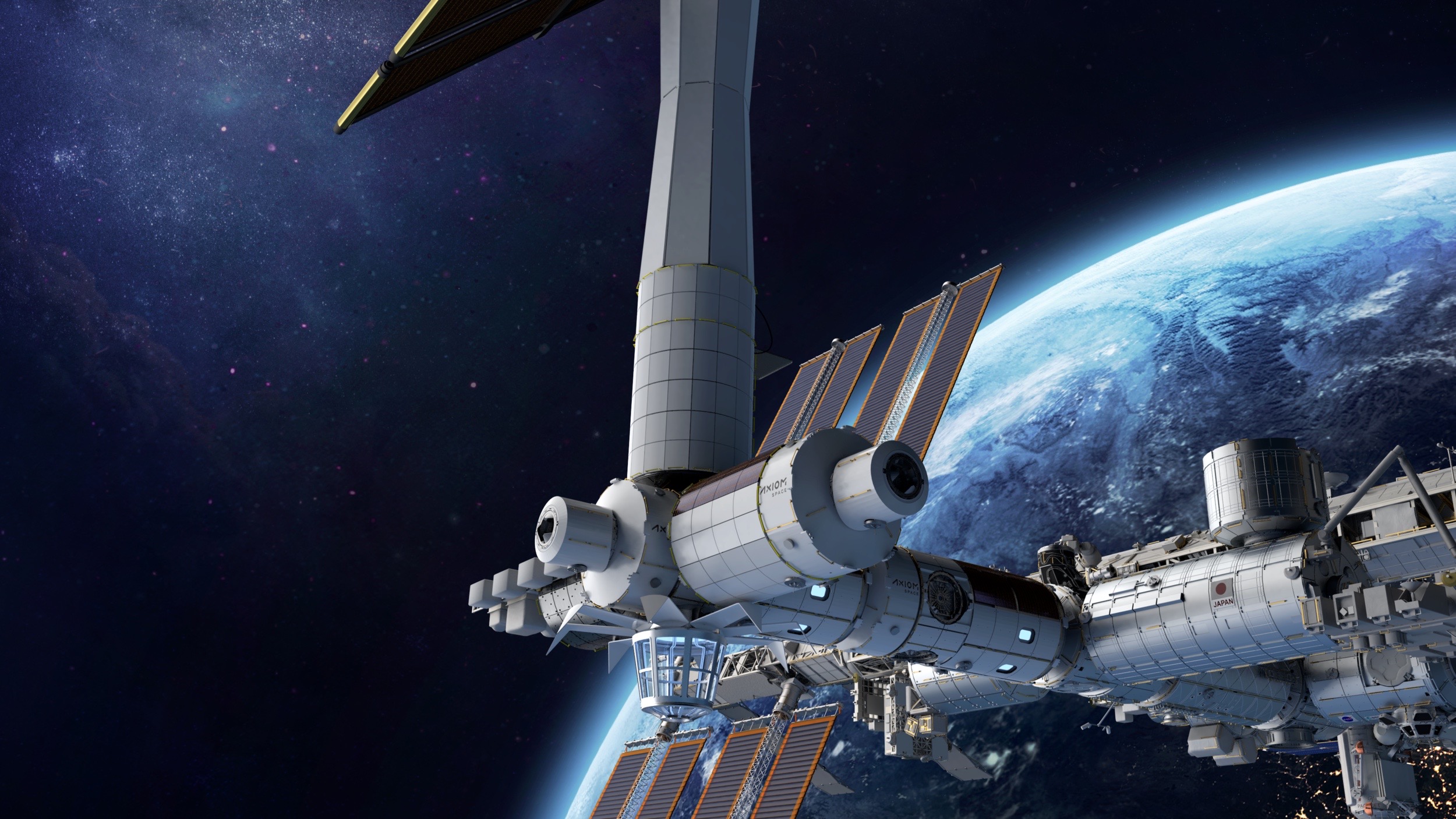Axiom Space deal will put New Zealand research on the International Space Station
Manufacturing, biotechnology and clinical research top the priority list for New Zealand as it expands its space presence.

New Zealand has a research ticket to work on the International Space Station.
The country partnered with commercial research company Axiom Space on July 28 to fly experiments on future missions with the Houston-based company.
"We at Axiom Space are pleased to partner with Aotearoa [the original Maori name for New Zealand] to offer new access to space and create opportunities for companies, scientists and researchers," Michael Suffredini, Axiom's president and CEO, said in a July 28 statement.
Photos: The first space tourists
New Zealand will focus on manufacturing and biotechnology on the International Space Station (ISS) as a part of the agreement, which includes research teams from the University of Canterbury and the University of Auckland.
The new memorandum of understanding (MOU) with Axiom appears to be part of the country's ongoing expansion of work in space. In 2021, New Zealand was the 11th country to sign the Artemis Accords, a set of international agreements governing future lunar exploration under NASA's leadership.
New Zealand signed on to the accords, focused on lunar exploration through the Artemis program that aims to put boots on the surface, to discuss space resource management on the moon. (NASA plans to mine moon water to bring down the cost and complication of long-term settlement of the moon.)
Breaking space news, the latest updates on rocket launches, skywatching events and more!
Institutions in New Zealand will use the MOU with Axiom for matters such as drug and vaccine development, along with an artificial intelligence system meant to simplify clinical decision-making, the statement said.
"Initiating development to help manage astronaut health, the tool could help health professionals assess health risks and treatment planning when they are very remote from patient locations, such as those in space or in Antarctica," Axiom and New Zealand officials wrote. "Axiom Space will contribute in-space operational experience to the study, with the New Zealand team providing computational, medical, and human performance expertise."
Axiom Space, founded in 2016, ran the first ever private research mission on the ISS earlier in 2022. The mission, called Ax-1, flew three paying space tourists and a retired NASA astronaut to the International Space Station on a SpaceX Crew Dragon spacecraft.
As the company prepares to launch more missions already approved by NASA, Axiom has ambitious plans to create new structures to attach to the orbital outpost — many of them dedicated to research. When the space station is decommissioned (which is expected to happen in the early 2030s), these structures will collectively detach as a self-sufficient private space station in low Earth orbit.
Axiom Space's first module is scheduled to reach the space station sometime in late 2024, according to the company's website.
Prior to New Zealand, Axiom signed similar MOUs with Italy, Hungary, and the United Arab Emirates (UAE), including bringing Emirati astronaut Sultan AlNeyadi for the first Arab nation long-duration mission on the ISS in spring 2023.
Follow Elizabeth Howell on Twitter @howellspace. Follow us on Twitter @Spacedotcom and on Facebook.

Elizabeth Howell (she/her), Ph.D., was a staff writer in the spaceflight channel between 2022 and 2024 specializing in Canadian space news. She was contributing writer for Space.com for 10 years from 2012 to 2024. Elizabeth's reporting includes multiple exclusives with the White House, leading world coverage about a lost-and-found space tomato on the International Space Station, witnessing five human spaceflight launches on two continents, flying parabolic, working inside a spacesuit, and participating in a simulated Mars mission. Her latest book, "Why Am I Taller?" (ECW Press, 2022) is co-written with astronaut Dave Williams.
